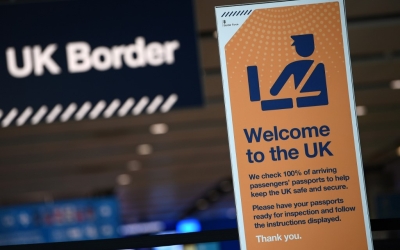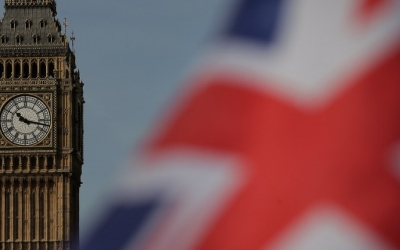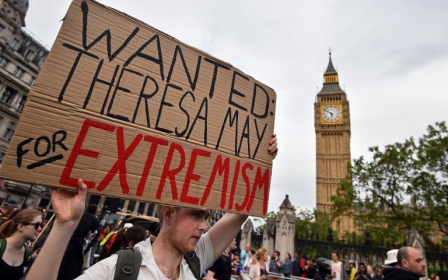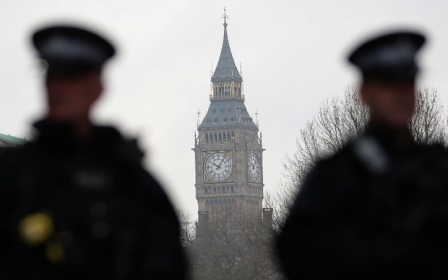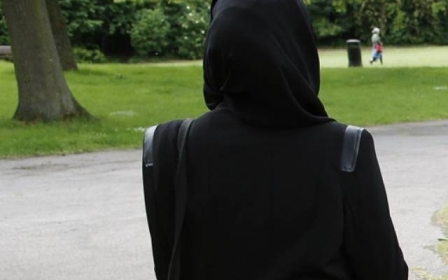Why the UK government should not be allowed to define Islamophobia
Having spent three years alerting my colleagues to the dangers of the controversial International Holocaust Remembrance Alliance (IHRA) definition of antisemitism, I was disheartened to see the definitional approach to racism revived again in 2018, when the All-Party Parliamentary Group (APPG) on British Muslims released “Islamophobia Defined”, proposing a definition of Islamophobia for governmental adoption.
I saw the same mistakes that I had witnessed in connection with the implementation of the IHRA definition being repeated. So I wrote an academic article, now forthcoming in the Journal of Law and Religion (a draft is here), on the dangers of defining Islamophobia.
Prosecuting dissent
Given that the APPG definition of Islamophobia is gradually being adopted by city councils, such as Manchester, and by political parties, including Labour - and that there have been calls for its adoption by government - I accepted the invitation by MEE to restate my arguments on the definition of Islamophobia for a wider audience. I did so with both conviction and trepidation, having spent my adult life devoted to Islamic culture, while also having spent the past three years campaigning against the IHRA definition.
The IHRA definition was adopted by the UK government on 12 December 2016. Its adoption was followed by a series of crackdowns on Palestinian activism, particularly focused on trying to mitigate the effects of Israeli Apartheid Week. Events critical of Israel were cancelled. Students and university staff were censored for their writings and statements about Israel. Jo Johnson, in his capacity as minister of state for universities, began pressuring universities to adopt the IHRA definition.
New MEE newsletter: Jerusalem Dispatch
Sign up to get the latest insights and analysis on Israel-Palestine, alongside Turkey Unpacked and other MEE newsletters
All definitions, irrespective of their content, empower governments in potentially dangerous ways to prosecute anyone who dissents
While the IHRA definition is clearly flawed on its own terms as a text that conflates criticism of Israel with antisemitism, governmental reliance on such definitions also raises broader questions. One point that has not been adequately reflected on is that all definitions, irrespective of their content, empower governments in potentially dangerous ways to prosecute anyone who dissents.
My experience with the IHRA definition has made me alert to the dangers of group-specific governmental definitions, and have taught me to fear what any state may do to the communities it claims to protect. I therefore set out here some of my reservations about the proposed Islamophobia definition, which arise from many years of observing the persecution of Muslim minorities and witnessing the unforetold negative impact of the IHRA definition in the UK.
Ignoring the state's role
I acknowledge that efforts to define Islamophobia can be useful in drawing attention to persistent anti-Muslim racism. My objection is specifically to a governmental definition of Islamophobia (and antisemitism), particularly one used to criminalise speech and to punish specific points of view.
I do not object in principle to the use of a definition by a political party or institution, although in these cases, the best definition will be one that allows for a more flexible conception of Islam and of Muslim identity than the APPG report envisions.
Although many Muslims and non-Muslims may disagree with the objections voiced here, my concerns are not merely academic. As scholars of freedom of expression have long recognised - and as anti-Zionist Jews know from their experience of fighting the IHRA definition - any group-specific definition of racism can end up harming the very communities it aimed to protect.
Among the biggest problems with the current Islamophobia definition is that it ignores the role of the state in fostering Islamophobia. Many well-intentioned advocacy efforts to protect Muslims from Islamophobia fail to acknowledge the government’s role in propagating this prejudice.
Even had the domestic "war on terror" not already compromised the UK’s relationship with its Muslim citizens, a governmental definition of Islamophobia could never reach a democratically legitimate consensus among the group targeted for protection.
Not all Muslim groups have welcomed the proposed governmental definition. Among the most outspoken and articulate of the groups who have raised necessary yet - for the government - uncomfortable questions is CAGE, which describes itself as “an independent advocacy organisation working to empower communities impacted by the war on terror”.
In responding to the APPG’s call for evidence, CAGE argued that that the government’s use of counterinsurgency methods and tactics to treat the “wider [Muslim] population as an enabler and supporter of insurgency and terrorism” illustrates how “institutionalised Islamophobia is linked to the erosion of the rule of law”. CAGE’s detailed response effectively exposes what it calls the “strong stench of Islamophobia” in British government policies relative to Muslims.
'Civilization's antithesis'
CAGE further noted that the war on terror ushered in “a raft of counter-terrorism legislation … and policies such as Prevent, which reinforce securitised narratives about Islam, and compel public sector workers to implement a discriminatory approach to Muslims, which has seen children as young as four criminalised”.
From the viewpoint of CAGE, governmental efforts to define Islamophobia are best treated with scepticism as long as the more basic structural phobias introduced by the war on terror remain unaddressed. “If the definition of Islamophobia cannot hold those in power to account for their role in manufacturing Islamophobia, then it is inadequate,” said Asim Qureshi, research director of CAGE.
Any offence against a religious community is turned into an occasion for scrutinising it, often in the name of its protection
Similarly, critical race theorist Khaled Beydoun recognised the role of government policies in fostering Islamophobia in an article for the Columbia Law Review. Beydoun incorporates governmental complicity into his definition of Islamophobia as an attitude “rooted in understandings of Islam as civilization’s antithesis and perpetuated by government structures and private citizens”.
Beydoun goes beyond the APPG report in examining the intersection of Islamophobia and the war on terror. But his contribution to the definition of Islamophobia is limited by his conflation of the attitudinal (“Islam as civilization’s antithesis”) with the infrastructural (“government structures”), and by an inadequate contextualisation of Islamophobia within a more structural account of anti-Muslim racism.
When deployed by government, the definitional framework situates the legal system within a victim-blaming epistemology, whereby any offence against a religious community is turned into an occasion for scrutinising it, often in the name of its protection.
When engaged in by sympathetic politicians, the scrutiny may appear favourable and intended to reinforce Islam’s positive qualities. It would be a mistake, however, to take comfort in the simulated benevolence of the neoliberal state. Even former Prime Minister David Cameron had positive words for Islam in his paternalistic 2015 speech on extremism that set the stage for future government policy on British Muslims, including the revised Prevent strategy.
Enhancing coercive powers
Regardless of how such rapprochement might appear to support the integration of Muslims into European societies, it can be harmful to Muslim minorities in the long run, particularly when the same agencies mandated to protect Islam disproportionately surveil Muslims.
Some Muslim organisations that promote the criminalisation of Islamophobic speech often do this as part of a tradeoff that involves ignoring the harms done to Muslim citizens by the war on terror. Such groups tacitly collaborate in government surveillance in exchange for the government’s commitment to penalise those who make statements deemed offensive to Islam. Such a tradeoff is undemocratic, as well as a dangerous bargain from a Muslim point of view - and it may well undermine Muslims’ security over the long term.
The power of hate speech derives from state-sanctioned discrimination and legally codified racism, which ethnic and sexual minorities have endured throughout history. Far from existing in opposition to it, anti-Muslim hate speech derives its power from governmental surveillance of Muslims.
A government that targets Islam for suspicion (including “non-violent” extremist Islam, as per the 2015 revised version of the Prevent strategy) has no legitimate authority to define Islam for the purposes of its protection. Inasmuch as Islamophobic discourse derives its power from government policies and practices, the fight against Islamophobia should prioritise opposition to those policies, rather than tacitly consenting to them in exchange for “protection” by a discriminatory state.
Government efforts to broaden the meaning of terrorism are related to the drive to broaden the meaning of Islamophobia. In both cases, broadening the definition extends the remit of the state and enhances its coercive powers.
Why should a government that enshrines a double standard of suspicion against Islam in its legislation be trusted to protect this religion through a legal definition of Islamophobia? Would it not be more sensible to critically scrutinise the Islamophobic dimensions of that state’s legislation, rather than entrust it to criminalise views that are reinforced and legitimated by its war on terror?
The views expressed in this article belong to the author and do not necessarily reflect the editorial policy of Middle East Eye.
Middle East Eye delivers independent and unrivalled coverage and analysis of the Middle East, North Africa and beyond. To learn more about republishing this content and the associated fees, please fill out this form. More about MEE can be found here.



